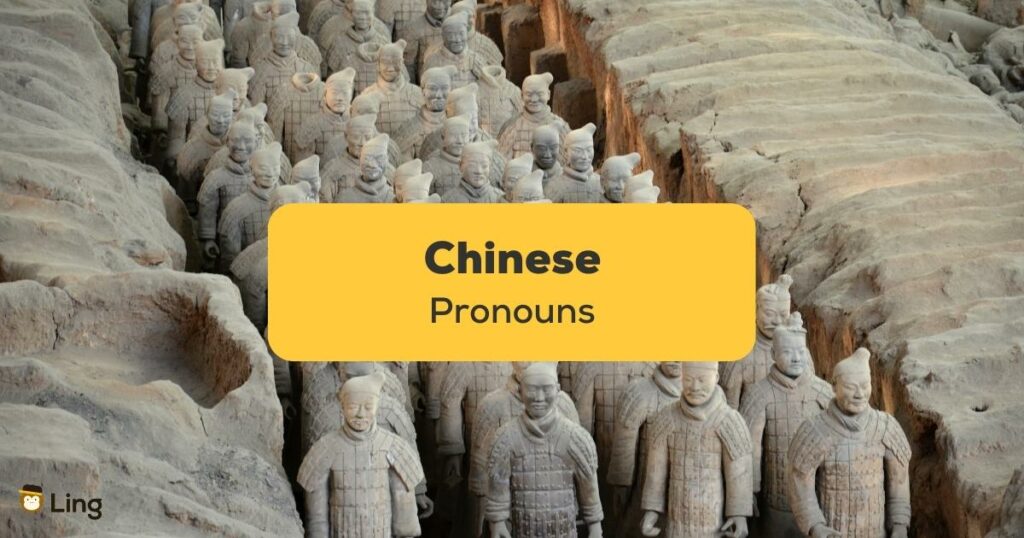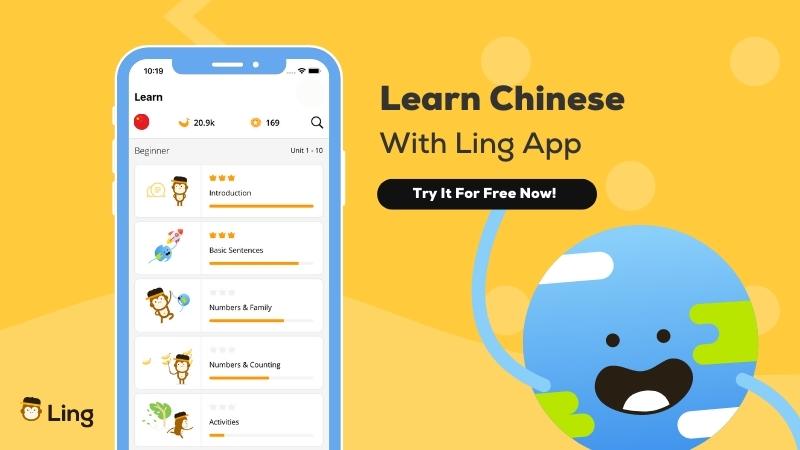Imagine talking to your Chinese friends and referring to another person, but your friends are confused since you used the wrong pronouns. If that’s ever happened to you, then it’s time to brush up on your Chinese pronouns here on the blog!
The building blocks of a Chinese sentence are the pronouns, verbs, and objects, just as they are in any other language. Therefore, it’s essential to have a solid grasp of various pronouns to apply them effectively, and you and your friends will be less likely to send each other confusing messages. In addition, you may need to learn many more kinds of pronouns in Chinese beyond personal ones. These include interrogative pronouns, demonstrative pronouns, indefinite pronouns, etc.
So, let’s dive right in, shall we?
Chinese Personal Pronouns
Before we start, remember that all Chinese pronouns can function as subjects or objects. Furthermore, there is no distinction between singular and plural forms, as there is in English between “she” and “her,” or “eat” and “eats,” for example.

Singular Personal Pronouns
Here are the Chinese singular personal pronouns you should be familiar with.
- I or me – 我 (wǒ)
- You (informal) – 你 (nǐ)
- You (formal) – 您 (nín)
- He or him – 他 (tā)
- She or her – 她 (tā)
- It – 它 (tā)
Example Sentences
- She speaks very good English. – 她英语说得很好。 (tā yīngyǔ shuō de hěn hǎo)
- I bought many books yesterday. – 我昨天买了好几本书。(wǒ zuótiān mǎile hǎojǐ běn shū)
Plural Personal Pronouns
Here are the Chinese plural personal pronouns you should know.
- We or us – 我们 (wǒmen)
- You – 你们 (nǐmen)
- You guys – 您几位 (nín jǐ wèi)
- They or them (unisex) – 他们 (tāmen)
- They or them (female) – 她们 (tāmen)
- They or them (animal or objects) – 它们 (tāmen)
Example Sentences
- We’re all student. – 我们都是学生。(wǒmen dōu shì xuéshēng)
- They’re my old friends. – 他们是我的老朋友。(tāmen shì wǒ de lǎo péngyǒu)
Chinese Possessive Pronouns
The following are some instances of a possessive pronoun formed by adding the word 的 (de) to the next of the relevant personal pronoun.
- My or Mine – 我的 (wǒ de)
- Your or yours – 你的 (nǐ de)
- Her or hers – 她的 (tā de)
- His or him – 他的 (tā de)
- Our or ours – 我们的 (wǒmen de)
Example Sentences
- She got very angry with her children. – 她对她的孩子非常生气。(tā duì tā de háizi fēicháng shēngqì)
- Tom lent me his pen. – 汤姆把他的笔借给了我。(tāngmǔ bǎ tā de bǐ jiè gěile wǒ)
Chinese Reflective Personal Pronouns
Before moving on to the list, we should learn the meaning of the word 自己 (zìjǐ). It means “oneself.” You should now be able to predict what other personal pronouns this word goes with.
- Myself – 我 自己 (wǒ zìjǐ)
- Yourself – 你 自己 (nǐ zìjǐ)
- Herself – 她 自己 (tā zìjǐ)
- Himself – 他 自己 (tā zìjǐ)
- Itself – 它 自己 (tā zìjǐ)
Example Sentences
- I don’t think she was embarrassed to see herself. – 我想她不是不好意思看到她自己。(wǒ xiǎng tā bùshì bù hǎoyìsi kàn dào tā zìjǐ)
- How often I have asked myself these same questions – 我常常问我自己这些同样的问题。(wǒ chángcháng wèn wǒ zìjǐ zhèxiē tóngyàng de wèntí)
Chinese Interrogative Pronouns
These interrogative pronouns are useful because they are frequently used to form questions. Let’s check it out!
- How – 怎么 (zěnme)
- What – 什么 (shénme)
- When – 什么时候 (shénme shíhòu)
- Where – 哪里/哪儿 (nǎlǐ / nǎr)
- Which – 哪个/哪些 (nǎge / nǎxiē)
- Who – 谁 (shéi)
- Why – 为什么 (wèishénme)
- How much/how many 多少 (duōshǎo)
Example Sentences

Chinese Demonstrative Pronouns
This, that, those, and these all have English and Chinese equivalents. So let’s check it out!
- This – 这 (zhè)
- That – 那 (nà)
- These – 这些 (zhèxiē)
- Those – 那些 (nàxiē)
- Here – 这里 / 这儿 (zhèlǐ / zhèr)
- There – 那里 / 那儿 (nàlǐ / nàr)
- This way – 这边 (zhèbiān)
- That way – 那边 (nàbiān)
- This one – 这个 (zhège)
- That one – 那个 (nàgè)
Example Sentences
- Please explain these questions to me. – 请你解释这些问题给我听。(qǐng nǐ jiě shì zhè xiē wèn tí gěi wǒ tīng)
- This is my cloth. – 这是我的衣服。(zhè shì wǒ de yī fú)
Chinese Indefinite Pronouns
Does the word “大家好!”(dàjiā hǎo) mean “Hello, everyone” seem familiar to you? Indeed, this is another example of a term that fits within this group.
Example Sentences
- Everyone really likes this movie. – 大家都很喜欢这部电影。 (dàjiā dōu hěn xǐhuān zhè bù diànyǐng)
- No one can guarantee anyone’s future. – 谁都不能包管别人的前途。 (shéi dōu bùnéng bāoguǎn biérén de qiántú)
Are You More Comfortable Using Chinese Pronouns Now?
We have confidence that you have gained valuable knowledge from this blog. You may prevent confusion in your interactions with the locals by learning these pronouns in Chinese. Pronouns are crucial in all languages because they indicate who is being spoken about in a particular context, whether in the first person, the second person, or the third person. Therefore, keep these words to memory and use them in actual conversation.
Meanwhile, If you want to expand your Chinese vocabulary beyond pronouns, we have just the place to start!
Learn Chinese With Ling
For convenient, portable Chinese language study, Ling is your best bet. Despite widespread belief to the contrary, learning Chinese isn’t nearly as hard as some make it out to be. The most daunting aspect, by far, is memorizing the thousands upon thousands of Chinese characters that make up the language. To get by in areas where Chinese is spoken, however, you need to know only a relevant handful of characters.
So, if you want to study Chinese, Ling is the way to go because it provides a wealth of relevant vocabulary and native-speaker audio. Furthermore, it is shown that learning new words requires both visual and auditory inputs.
Most Chinese learners chose Ling to help them succeed, so why not join them? Download the Ling App from Google Play Store and Apple App Store now, and prepare to be fluent in Chinese soon!























